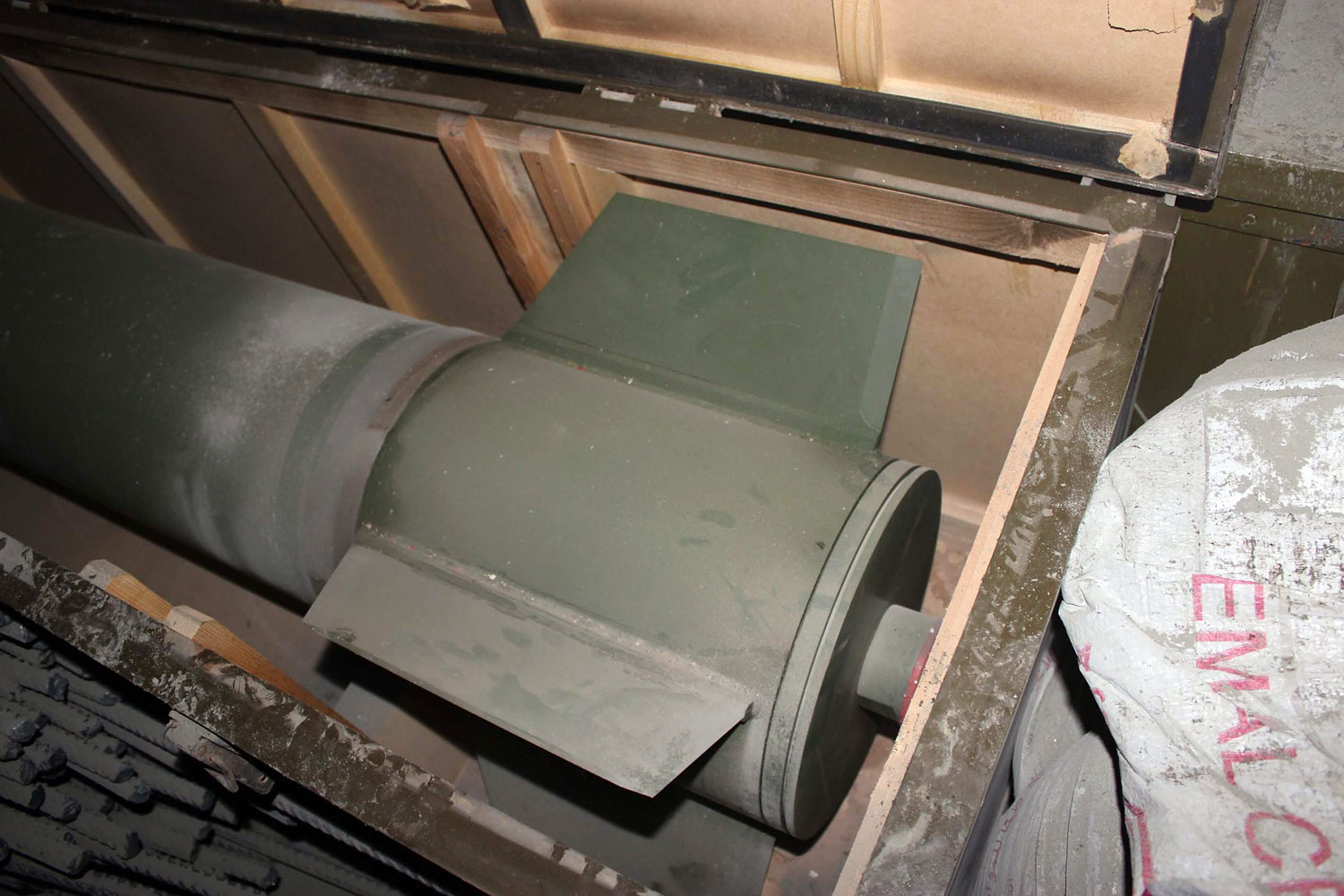
According to a senior Israeli military source, the rockets seized by Israeli naval commandos Wednesday en route to the Gaza Strip were more destructive than any known to exist in the Gaza Strip, where the cargo were believed headed from its starting point in Iran. The Syrian-made rockets found aboard have a range of 90 kilometers, or about 56 miles—far enough to reach Tel Aviv or Jerusalem from the Palestinian coastal enclave—and could carry a warhead with more 300 pounds of explosives.
“They could have been a game-changer had they reached the Gaza Strip,” says the Israeli official, speaking to TIME on condition of anonymity. “The weight of the rockets warheads is over hundred and fifty kilos, and the blow they can inflict on dense centers of population could have caused massive damage, both in casualties and property.”
Iran denied knowledge of the shipment, as did Hamas and Islamic Jihad, the militant Palestinian groups based in Gaza that Tehran has long supplied with arms.
So far 40 of the M-302, type A, ground-to-ground rockets have been discovered on the Klos-C, which Israel officials said was boarded with the captain’s permission near Port Sudan in the Red Sea. The number of rockets found on board may climb after the ship reaches the Israeli port of Eilat early Sunday morning, and all the containers on board can be scanned. The cargo apparently did not include launchers, but the military official said the M-302s could be launched out of assorted launchers.
Israel knows the damage such rockets can inflict. Hizballah, the Lebanese militant group, used both A and B types of the M-302 rockets against Israel in the Second Lebanon war in 2006. The strikes reached populated areas in the northern cities Afula and Haifa. In Haifa, eight railway garage workers were killed. Many more were wounded in the M-302 strikes.
The prospect of such weapons in Gaza is unpleasant to Israeli strategists. During both the most recent major Gaza battles, Operation Cast Lead in 2008, and Operation Pillar of Defense in 2012, militants fired warheads weighing 15 kilos, or 32 pounds. That’s just ten percent of the weight of the M-302 warheads. “No doubt terror organizations are making great efforts to achieve powerful strategic weapons, in the light of past experience, when the rockets used so far hardly reached Tel Aviv metropolis, and caused relatively little damage,” the Israeli official says.
The rockets carry no guidance system, and so cannot be aimed with any accuracy. But their range is significant–placing most of Israel’s population within danger.
And while Israelis have had striking success in knocking such simple ballistic missiles out of the air with its Iron Dome anti-missile batteries, the system is not foolproof. Some rockets get past it, and one battery can cover the skies above only one city at a time; Israel may not have enough Iron Domes to make good on its name. People still rush to bomb shelters when the wail of a siren warns of incoming.
Thus “Operation Full Disclosure,” as the Israelis called the intercepting of the Iranian cargo. A joint effort of the Israeli Army and the Mossad overseas intelligence agency, surveillance of the rocket shipment had been going on for months. The cargo was tracked from its origin in Syria, to its transit by air cargo to Tehran, then to the Iranian port of Bandar Abbas where it was loaded on the Panamanian-flagged vessel. The Klos-C then proceeded to the Iraqi port of Um Qasr on what amounted to a diversion. Israeli officials said the the captain was presented with a new, false manifest.
Iran denied the cargo was its own, on what Western security officials have described as a well-worn route for arms shipments to Gaza. Foreign Minister Mohammad Javad Zarif took specific issue with Israeli Prime Minister Benjamin Netanyahu’s assertion–following his speech at the annual convention of the American Israel Public Affairs Committee–that the rockets showed the “true face” of Iran lurking behind the charm displayed by Zarif and his boss, President Hassan Rouhani.
“An Iranian ship carrying arms for Gaza,” read a Thursday post on Zarif’s Twitter account. “Captured just in time for annual AIPAC anti Iran campaign. Amazing Coincidence! Or same failed lies.”
More Must-Reads from TIME
- Inside Elon Musk’s War on Washington
- Why Do More Young Adults Have Cancer?
- Colman Domingo Leads With Radical Love
- 11 New Books to Read in February
- How to Get Better at Doing Things Alone
- Cecily Strong on Goober the Clown
- Column: The Rise of America’s Broligarchy
- Introducing the 2025 Closers
Contact us at letters@time.com